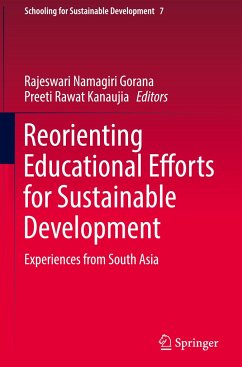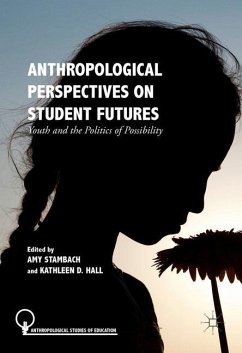
The Anthropology of Sustainability
Beyond Development and Progress
Herausgegeben: Brightman, Marc; Lewis, Jerome

PAYBACK Punkte
57 °P sammeln!
This book compiles research from leading experts in the social, behavioral, and cultural dimensions of sustainability, as well as local and global understandings of the concept, and on lived practices around the world. It contains studies focusing on ways of living, acting, and thinking which claim to favor the local and global ecological systems of which we are a part, and on which we depend for survival. The concept of sustainability as a product of concern about global environmental degradation, rising social inequalities, and dispossession is presented as a key concept. The contributors ex...
This book compiles research from leading experts in the social, behavioral, and cultural dimensions of sustainability, as well as local and global understandings of the concept, and on lived practices around the world. It contains studies focusing on ways of living, acting, and thinking which claim to favor the local and global ecological systems of which we are a part, and on which we depend for survival. The concept of sustainability as a product of concern about global environmental degradation, rising social inequalities, and dispossession is presented as a key concept. The contributors explore the opportunities to engage with questions of sustainability and to redefine the concept of sustainability in anthropological terms.












